您现在的位置是:常见问题 >
广东学位英语语法复习资料有哪些?
整理编辑:广东省学位英语考试网 发布时间:2024-04-02 11:13:39 阅读量:0
【导读】广东学位英语语法复习资料有哪些?关于这个问题,下面广东学位英语网小编为你解答,一起往下来看看吧~

1、时态:常用的10—11种
2、语态:被动语态
3、情态动词
4、虚拟语气
5、动词的非谓语形式三种
6、各种从句(主、宾、表、定、状、同位语从句)
7、主谓一致
8、倒装句
9、强调句
10、附加疑问句
第一部分 动词的时态
考试重点:一般现在时(if 从句和as soon as 从句);进行时表将来;现在完成时和现在完成进行时的区别;完成时瞬间动词以及have (has)been, have(has)gone的区别;过去完成时的时间状语;将来完成时。
一、一般现在式:
1、表示经常发生的动作或存在的状态:常和always, usually, often ,sometimes, every day, every week的等时间状语连用。
例:He goes to work every day. 他每天去上班。
2、表示普遍的真理。由于是众所周知的客观事实,所以一般不用时间状语。
例:The earth is round. 地球是圆的。
3、有些表示心理状态或感情的动词往往用一般现在时。
例:I don’t think you are right.我以为你错了。
4、在时间、条件状语从句中表示将来的动作:常用的连词有as soon as,when,till,if。
(1)They will go home for winter vocation as soon as they ________their exams.
A. have finished
B. finish
C. finished
D. was finishing
(答案:B)
(2)When the mixture ______, it will give off a powerful force.
A. will heat
B. will be heated
C. is heated
D. has heated
(答案:C)
二、一般过去时:
1、表示过去的动作或状态:常和过去时间状语连用。just now, last year, when I was 8years old等。
例:You've already missed too many classes this term .You _____ two classes just last week.
A. missed
B. would miss
C. had missed
D. have missed
(答案:A。有具体的时间状语要用过去时。)
2、used to do sth:过去常常做…
例:I used to take a walk in the morning.
我过去是在早晨散步。(意味着现在不在早晨散步了。)
3、it is high time(that)…句型中,谓语动词用过去时。
例:Don’t you think it is time you _____ smoking?
A. give up
B. gave up
C. would give up
D. should give up
(答案:B)
三、一般将来时:
1、will(shall)+原形动词:表示将来的动作或状态。
例:He will come and help you. 他会来帮助你的。
2、be going to +动词原形:表示马上就要发生的事情或打算好要做的事。
例:Are you going to attend the lecture? 你打算去听这个演讲吗?
3、be to +动词原形:表示安排或计划好了的动作。
例:The Third-Ring Road is to be open to traffic before National Day.
三环路将在国庆节前通车。
4、be about to +动词原形:表示即将发生的动作。
5、例:The lecture is about to begin.讲座即将开始。
6、某些表示开始、终结、往来行动的动词如:go ,come, start, arrive, leave 等的现在进行时可表示将来。
(1)We are leaving for Beijing tomorrow. 我们明天动身去北京。
(2)The foreign guests are arriving in Jinan tonight. 外宾今晚到达济南。
四、过去将来时
表示在过去预计将要发生的动作,常用于宾语从句。
例:He wanted to know when the conference would start.
他想知道会议何时开始。
五、现在进行时
1、表示此时此刻(说话时)正在进行的动作。
例:The teacher is talking with his students. 这位老师正在同他的学生交谈。
2、表示现阶段正在进行的动作,但此刻并不一定在进行。
例:I am attending a conference in Beijing. 我正在北京参加一个会议。
六、过去进行时
1、表示在过去某一段时间正在进行的动作。常需用表示过去的时间状语或通过上下文来判断时间。
例:He was doing his homework from seven to nine last night.
昨天晚上七点到九点他正在做作业。
2、when 和while 的用法
(1)I fell and hurt myself while I _____tennis.
A. was playing B. am playing C. play D. played
(答案:A。连接词when 表示时间上的点,其所引导的句子用过去时,while 表示持续的一段时间,其所引导的句子用过去进行时。)
(2)When you _____ this over with her, you should not see her any more.
A. talk B. talked C. will talk D. talking
(答案为B)
(3)One of the guards _____ when the general came in, which made him very angry.
A. has slept B. were sleeping C, slept D. was sleeping
(答案为D)
3、过去进行时表示过去将来的动作。现在进行时可以表示将来的动作,同样,过去进行时也可以表示从过去某时间看将来要发生的动作。
例:He went to see Xiao Li. He was leaving early the next morning.
他去看小李。他第二天一早就要离开此地了。
七、现在完成时
1、表示动作刚刚结束(常和just, now, already, yet等词连用);或表示动作的结果(一般不用时间状语)。
(1)Li Ming has just turned off the light. 李明刚刚把灯关上。(说明现在灯已经关上了)
(2)I have lost my pen. 我把笔丢了。(说明过去某时丢的,现在我还没有找到这支笔。)
2、表示过去某时开始的动作一直延续到现在,并且可能会继续延续下去(常用since引导的短语或从句,或由for 引导的短语连用)。
(1)He has lived here for 30 years. 他住在这儿已经三十年了。(现在还住在这儿)
(2)They’ve known each other since childhood. 他们从小彼此相识。(现在还继续来往)
3、非延续性动词的完成时和it is +时间+since…..(过去时)
英语中有些动词不能延续, 因此不能和表示延续的时间状语连用。
(1)He has _____ the army for ten years and is now an officer.
A. gone into
B. joined in
C. been in
D. come into
(答案:C。用现在完成时表示“继续”的概念时,只能用含有持续意义的动词,不可用瞬间性动词。)
(2)It is 3 years since I left Shanghai .我离开上海已经三年了。
(如果是非延续动词,这时常用 it is +时间+since 的句型代替,从句用过去时态。)
4、have(has)been to 和have (has)gone to 的区别
have(has )been to:去过某地(表示某人的一种经历),可以和once,twice,often,never,ever 连用。
have(has)gone to:去某地了(表示某人已经离开此地,在去某地的路途上或已在某地,所以一般来说此句型只用于第三人称),此句型不能与上述时间状语连用。
(1)He has gone to America.(意思为他已经去了美国,现在不在此地)
(2)He has been to America twice. 他去过美国两次。
八、过去完成时
1、表示在过去的某一时间或动作之前已经完成了的动作(即过去的过去)。这个过去的某一时间可用by, before等介词或连词引导的短语或一个从句来表示。
例:About the sixth century A.D. when few Europeans could read, the Chinese _____ paper.
A. invented
B. had invented
C. have invented
D. had been invented
(答案:B)
2、表示从过去某一时间开始,一直持续到另一个过去的时间的动作。
例:The chemistry class _____ for five minutes when we hurried there.
A. had been on
B. was on
C. has been on
D. would be on
(答案:A)
3、在含有before, after, as soon as 等连词引导的状语从句的复合句中,由于连词本身可以明确表示动作发生的先后顺序,因此,主句和从句都可以用一般过去时表示,而不用过去完成时。
例:I called him as soon as I arrived.我刚一到就给他打电话。
4、过去完成时常用在no sooner …than…, hardly/scarcely/barely…when…,一…就…。句型之中,句子到装。
(1)No sooner had we sat down _____ we found it was time to go.
A. than
B. when
C. as
D. while
(答案为A)
(2)Scarcely had he opened the door when a gust of wind blew the candle out.
他刚打开门,蜡烛就被一阵风吹灭了。
九、将来完成时:
表示在将来某一时间以前完成的动作。
1、By the time John gets home, his aunt _____.
A. will have
B. leaves
C. will have left
D. is leaving
(答案:C)
2、I _____ writing the article by the time you get back.
A. shall finish
B. must have finished
C. have finished
D. shall have finished
(答案:D)
十、现在完成进行时:
表示从过去某时一直延续到现在的一个动作,这个动作一般会继续延续下去,或是到说话时结束, 但是强调到说话时为止一直在做的动作。
例:I _____ on the door for ten minutes now without an answer.
A. was knocking
B. am knocking
C. knocking
D. have been knocking
(答案:D)
本文标签:广东学位英语 常见问题 广东学位英语语法复习资料有哪些?
转载请注明:文章转载自(http://www.gdxwyy.cn)
下一篇:广东学位英语被动语态有哪些?
《广东省学位英语考试网》免责声明:
1、由于各方面情况的调整与变化,本网提供的考试信息仅供参考,考试信息以省考试院及院校官方发布的信息为准。
2、本网信息来源为其他媒体的稿件转载,免费转载出于非商业性学习目的,版权归原作者所有,如有内容与版权问题等请与本站联系。联系邮箱:812379481@qq.com。
延伸阅读
- 广东2023年学位英语考试报考时间?11-28
- 广东自考本科学位英语满足这些条件可以免考11-11
- 2023年广东学位英语考试时间?01-04
- 2022年广东学位英语考试时间?10-08
- 广东2023年学位英语报考时间?11-19
- 什么是广东学位英语?07-18
- 广东学位英语最新考试大纲!09-22
- 学位英语拿60分通关技巧都在这里!08-23
- 2023年广东学位英语什么时候报名?11-28
- 学位英语成绩单如何获取?08-19


解锁即可开始刷题
并加入考生交流群


第一时间获取
学位英语考试资讯
精品视频
热搜排行榜
互动交流
-
扫码进入

解锁即可开始刷题
并加入考生交流群
-
扫码关注

第一时间获取
学位英语考试资讯









